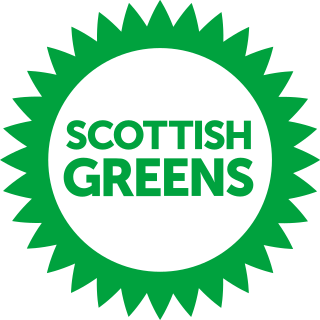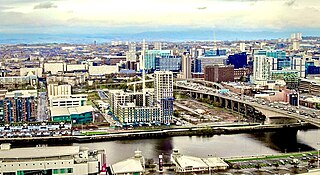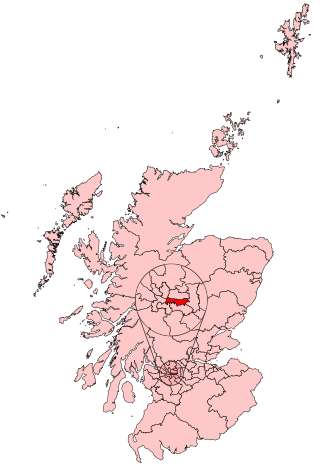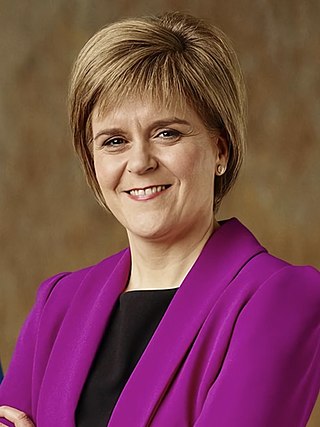Related Research Articles
The politics of Edinburgh are expressed in the deliberations and decisions of the City of Edinburgh Council, in elections to the council, the Scottish Parliament and the UK Parliament.

The Scottish Greens are a green political party in Scotland. The party has seven MSPs in the Scottish Parliament as of May 2021. As of the 2022 local elections, the party sits on 13 of the 32 Scottish local councils, with a total of 36 councillors. They held two ministerial posts in the first Yousaf government following a power-sharing agreement with the SNP from August 2021 until the end of the Bute House Agreement in April 2024, marking the first time Green Party politicians formed part of a government in the UK.

The politics of Scotland operate within the constitution of the United Kingdom, of which Scotland is a country. Scotland is a democracy, being represented in both the Scottish Parliament and the Parliament of the United Kingdom since the Scotland Act 1998. Most executive power is exercised by the Scottish Government, led by the First Minister of Scotland, the head of government in a multi-party system. The judiciary of Scotland, dealing with Scots law, is independent of the legislature and the Scottish Government. Scots law is primarily determined by the Scottish Parliament. The Scottish Government shares some executive powers with the Scotland Office, a British government department led by the Secretary of State for Scotland.
In Scotland, the Scottish National Party (SNP) is a left social democratic political party which campaigns for Scottish independence. The SNP has controlled Scotland's devolved legislature since the 2007 election as a minority government, and were a majority government from the 2011 election and have been a minority government, since the 2016 election.

Anderston is an area of Glasgow, Scotland. It is on the north bank of the River Clyde and forms the south western edge of the city centre. Established as a village of handloom weavers in the early 18th century, Anderston was an independent burgh of barony from 1824 until it was incorporated into the City of Glasgow in 1846.

Glasgow East is a constituency of the House of Commons of the UK Parliament, located in the city of Glasgow, Scotland. It elects one Member of Parliament at least once every five years using the first-past-the-post system of voting. It is currently represented by John Grady of the Labour Party who has been the MP since 2024.

Scottish Labour, officially the Scottish Labour Party, is the part of the UK Labour Party active in Scotland. Ideologically social democratic and unionist, it holds 22 of 129 seats in the Scottish Parliament and 37 of 57 Scottish seats in the House of Commons. It is represented by 262 of the 1,227 local councillors across Scotland. The Scottish Labour party has no separate Chief Whip at Westminster.
Patrick James Lally was a Scottish politician who was Leader of Glasgow City Council and Lord Provost of Glasgow.

Politics in the Dundee Citycouncil area are evident in the deliberations and decisions of Dundee City Council, in elections to the council, and in elections to the Scottish Parliament (Holyrood) and the House of Commons of the Parliament of the United Kingdom (Westminster).
In Scotland, the Scottish Socialist Party (SSP) is a left-wing political party. The party was formed in 1998 from an alliance of left-wing organisations in Scotland. In 1999, it saw its first MSP returned to Holyrood, with five more MSPs elected in 2003. It lost all MSPs in the 2007 elections and has lacked representation in the Scottish Parliament ever since.
The Politics of Aberdeen, Scotland have changed significantly in recent years. In 1996, under the Local Government etc. (Scotland) Act 1994, Grampian Regional Council and Aberdeen District Council were dissolved, creating the new unitary Aberdeen City Council to represent the city's council area.
Events from the year 2012 in Scotland.
The politics of Glasgow, Scotland's largest city by population, are expressed in the deliberations and decisions of Glasgow City Council, in elections to the council, the Scottish Parliament and the UK Parliament.
Events from the year 2013 in Scotland.
Events from the year 2014 in Scotland.

A general election was held in the United Kingdom on 7 May 2015 and all 59 seats in Scotland were contested under the first-past-the-post, single-member district electoral system. Unlike the 2010 general election, where no seats changed party, the Scottish National Party (SNP) won all but three seats in an unprecedented landslide victory. The SNP received what remains the largest number of votes gained by a single political party in a United Kingdom general election in Scotland in British history, breaking the previous record set by the Labour Party in 1964 and taking the largest share of the Scottish vote in sixty years, at approximately 50 per cent.
Francis Thomas Dingwall was a Scottish politician who served as Lord Provost of Glasgow from 1995 to 1996.

Bailie Philip Braat is a Scottish Labour politician who served as the Lord Provost of Glasgow from 2020 until 2022. He previously served as Deputy Lord Provost from 2017 to 2020. He has represented the Anderston/City/Yorkhill ward since May 2007.

Elections to Glasgow City Council took place on 5 May 2022 on the same day as the 31 other Scottish local government elections. As with other Scottish council elections, it was held using single transferable vote (STV) – a form of proportional representation – in which multiple candidates are elected in each ward and voters rank candidates in order of preference.
References
- ↑ Mosson, Alexander Francis. doi:10.1093/ww/9780199540884.013.U28328. ISBN 978-0-19-954088-4 . Retrieved 2 November 2022.
{{cite book}}:|website=ignored (help) - ↑ Council threatens to throw the book at author, The Scotsman, 21 June 2008
- ↑ Alex Mosson (Glasgow Caledonian University, Research Collections, Archives, 2002), The Glasgow Story
- ↑ "Scottish independence: Labour grandee backs Yes vote". 17 November 2013. Retrieved 17 November 2013.